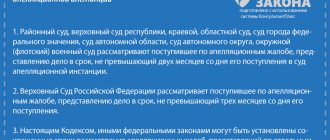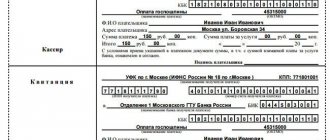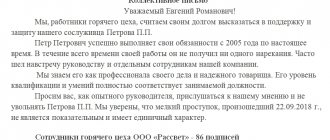“Unpredictable” cassation
Cassation remains the most unpredictable stage of appealing an unfair or “undesirable” judicial act. Often, the cassation instance upholds court decisions with obvious signs of violations. This undermines confidence in the judicial system.
In December 2021, Chairman of the Supreme Court of the Russian Federation V.M. Lebedev summed up the first results of the work of cassation courts of general jurisdiction. In the report, the chief judge of Russia indicated that in 2021, these courts considered 170 thousand complaints in civil cases, 18 thousand in administrative cases and 67 thousand in criminal cases.
At the same time, the Chairman of the RF Supreme Court noted an increase in the number of satisfied complaints. So, if earlier the cassation authority satisfied 3% - 8% of applications, now - 12% - 16% of the total number of complaints. The most significant growth was demonstrated by cassation in civil and administrative proceedings.
As you can see, the percentage of decisions overturned by cassation courts of general jurisdiction is now quite comparable to the figures demonstrated by the statistics of the work of arbitration cassation courts. The latter also cancel about 12% - 16% of decisions of lower authorities.
This is because the cassation courts are no longer associated with “regional” interests and take a more balanced independent position. However, not everything is so smooth here either. Often, cassation upholds unfair and illegal judicial acts. The adoption of such decisions is seriously influenced by the notorious judicial “corporatism” (many cassation and appellate judges know each other in person or in absentia), as well as established practice.
The second reason why the cassation court does not always overturn decisions of lower courts is that it is based on the content of the cassation complaint and the arguments presented in it. In addition, it checks the legality of the court decision. In simple words, the cassation court will not (and is not obliged) to study the circumstances of the case in detail and evaluate the correctness of the assessment of evidence in the case by “previous” authorities.
The cassation court does not have the right to review facts and circumstances already assessed by previous instances if the assessment was carried out in compliance with the norms of substantive and procedural law. Further, he cannot collect additional evidence and attract new defendants to participate in the case.
The activity of the Supreme Court of the Russian Federation as a cassation authority in civil cases is also interesting (in the light of judicial reform). Statistics show that the RF Armed Forces are steadily reducing the number of cases accepted for consideration from year to year. So, if in 2018, the Supreme Court cassation considered 995 complaints, then in 2021 – 879, and in 2021, the number of materials considered dropped to 564 cases. At the same time, in 2021, legal entities and individuals filed for cassation with the RF Armed Forces - 50,386 complaints and submissions. It turns out that only... 1.11% of complaints sent to the Supreme Court reached consideration. This is an extremely low figure. However, to be fair, it should be said that the Supreme Court of the Russian Federation as a cassation instance is satisfied by about 94% - 95%. And this is already a high figure.
Article 377 of the Code of Civil Procedure of the Russian Federation. Procedure for filing a cassation appeal or presentation (current version)
In judicial practice, the issue of the constitutionality of the provisions of the commented part, excluding the possibility of appealing the decision of the magistrate and the appeal ruling adopted based on the results of consideration of the appeal against the decision of the magistrate, in cassation and supervisory procedures in the Supreme Court of the Russian Federation, was considered. However, the Constitutional Court of the Russian Federation clarified that the possibilities of appealing against judicial decisions that have entered into legal force, issued on a dispute initially resolved by a magistrate, are limited and depend on the results of consideration of the complaint (presentation) in the presidium of the supreme court of the republic, regional, regional or equivalent court; such differentiation is related to the specifics of cases that the law assigns to the jurisdiction of magistrates, meets the goals of ensuring proportionality of protected rights and procedural costs and cannot be considered as unacceptable and violating the constitutional requirement of equality of all before the law and the court.
———————————
See: Determination of the Constitutional Court of the Russian Federation dated October 26, 2021 N 2441-O “On the refusal to accept for consideration the complaint of citizen Vladimir Gavrilovich Ivanov about the violation of his constitutional rights by paragraph 5 of part one of Article 379.1 in conjunction with paragraph 1 of part two of Article 377 of the Civil Code Procedural Code of the Russian Federation".
It should be noted that radically different functions for reviewing court decisions in the order of appeal and in cassation are performed by one instance - the Judicial Collegium of the Supreme Court of the Russian Federation (clause 2 of article 20 of the Federal Constitutional Law of February 7, 2011 N 1-FKZ “On courts of general jurisdiction in the Russian Federation"). However, as E.A. rightly notes. Borisov, for each type of judicial activity there should be an independent judicial authority. Under existing conditions, verification proceedings of any kind, regulated by civil procedural legislation, are a flawed phenomenon, and therefore, unable to provide effective judicial protection of civil rights. It seems that the optimal organization of cassation courts required the creation of the Cassation Board of the Supreme Court in the Russian Federation. The creation of such a structure within the Supreme Court of the Russian Federation would make it possible to resolve the issue of cassation appeal of decisions made at first instance by the supreme court of the republic, regional, regional court, court of a federal city, court of an autonomous region, court of an autonomous district.
———————————
See: Borisova E.A. Reforming procedural legislation: present and future // Arbitration and civil process. 2011. N 4. P. 40.
2. The objects of the legal relations under consideration will be the court decisions specified in the commented norm. As already noted, the objects of legal relations between courts in cassation proceedings exclude decisions of the supreme courts of republics, regional, regional courts, courts of federal cities, courts of an autonomous region, courts of autonomous districts, adopted by them at first instance. Based on the analysis of part 2 of the commented article, the objects of legal relations between courts that arise regarding cassation review should include those that have entered into legal force:
— court orders, decisions and determinations of magistrates;
- decisions and determinations of garrison military courts;
— appeal rulings of district courts;
— appeal rulings of the supreme courts of republics, regional, regional courts, courts of federal cities, courts of an autonomous region, courts of autonomous districts;
— appeal rulings of district (naval) military courts;
- decisions of the presidiums of the supreme courts of republics, regional, regional courts, courts of federal cities, courts of the autonomous region, courts of autonomous districts;
- decisions of the presidiums of district (naval) military courts.
Thus, judicial acts adopted by both the courts of the first and second and cassation instances are subject to cassation review.
Considering that the court of cassation is subject to review of judicial decisions that were once reviewed in the court of appeal, within these limits we can talk about a certain identity of the objects of legal relations in cassation and appeal proceedings.
The object of legal relations between courts in cassation proceedings can be either a judicial act as a whole or part of it. An additional solution can also become an independent object. In addition, the object of review in cassation proceedings may be either several court decisions or one of them. For example, the object of review in cassation proceedings can only be an appeal ruling of the district court, and the decision of the magistrate, if it has not been appealed, will not be considered by the cassation court. If a simultaneous appeal is made against both the decision of the magistrate and the appellate ruling of the district court, both of these judicial acts will act as objects of legal relations that develop between the courts in cassation proceedings.
Example: The Presidium of the Kemerovo Regional Court, on A.’s cassation appeal against the decision of the magistrate and the appeal ruling of the city court of the Kemerovo Region on a claim for the protection of consumer rights, canceled only the appeal ruling, since the appellate court did not verify and assess the factual circumstances of the case and did not give a legal qualification to the legal relations that arose did not comply with the requirements of the current legislation, in violation of the norms of civil procedural legislation, did not give a proper assessment of all the evidence in the case and issued a resolution without stating or motivating its conclusions regarding its adoption. The requirements of the law and the explanations of the Plenum of the Supreme Court of the Russian Federation by the court of appeal when considering the case were not fulfilled; the decision of the magistrate, made in violation of substantive law, was left unchanged.
The case was sent for a new trial to the court of appeal with instructions to take into account the above, correctly determine the circumstances relevant to the case, give a proper assessment of the evidence presented and resolve the dispute in accordance with the requirements of the law (see Resolution of the Presidium of the Kemerovo Regional Court dated June 5, 2021 on case No. 44g-34).
In this case, the cassation court, having canceled the appeal ruling and sent the case for a new trial to the appellate court, granted the appellate court the right, taking into account these instructions, to review the decision of the first instance court and make a legal and reasonable ruling on the case, which is fully consistent with the essence of cassation proceedings .
In the science of procedural law, the question has been repeatedly raised about whether court decisions that do not resolve the case on the merits can be the object of appeal. Some scientists argue that any rulings of the court of first instance can be appealed, others - only those rulings that end the proceedings on a case or on a separate issue, or those court rulings that end a separate stage of legal proceedings and send the case to the next stage or return it to the previous one stage
———————————
See: Shind V.I. Consideration of criminal cases by court presidiums. M., 1960. S. 14 - 15, 21 - 22.
See: Rakhunov R.D. Review of sentences and rulings in court presidiums. M., 1956. P. 25.
Based on the meaning of Part 1 of Art. 376 of the Code of Civil Procedure of the Russian Federation, part 2 of the commented article, it seems that the object of legal relations between courts in cassation proceedings can be any rulings of the courts of first instance that have entered into legal force, since the law does not establish any other restrictions, with the exception of decisions of the Supreme Court of the Russian Federation. In support of this conclusion, one can cite the arguments proposed by P.Ya. Trubnikov. In his opinion, if rulings are not subject to appeal in a court of second instance, then they have the property of being enforceable from the moment of issuance. These include preparatory rulings adopted by the court in preparation of a case for trial or during trial. Other rulings of the court of first instance can be appealed by the parties and other persons involved in the case both to the appellate court (in cases where this is provided by law or when the ruling excludes the possibility of further progress of the case) and to the cassation court. Since the current legislation does not contain restrictions on cassation appeal of various types of rulings of lower courts, it should be concluded that the object of civil procedural legal relations between the cassation court and lower courts can be any rulings made by the latter. It should be borne in mind that the objects of procedural legal relations between courts in cassation proceedings can only be court rulings that have entered into legal force.
———————————
See: Trubnikov P.Ya. Review of decisions by way of judicial review. M., 1974. P. 27.
3. It should be noted that for the review of court rulings that do not resolve the case on the merits, the cassation procedure does not provide for a separate appeal procedure, as, for example, in appellate proceedings. Such court rulings that have entered into legal force are reviewed in cassation along with other judicial decisions made by the courts on the merits of the case.
In addition, the object of civil procedural legal relations that develop in the field of cassation proceedings, as follows from the content of paragraph 1 of part 2 of the commented article, are also court orders that are appealed to the presidium of the supreme court of the republic, regional, regional court, court of a federal city , courts of the autonomous region, courts of the autonomous district. Considering that modern cassation proceedings almost completely reproduce the previously existing institution of supervisory proceedings, it would be appropriate to refer to the Resolution of the Plenum of the Supreme Court of the Russian Federation dated February 12, 2008 No. 2 “On the application of norms of civil procedural legislation in the supervisory court in connection with the adoption and introduction of effect of the Federal Law of December 4, 2007 N 330-FZ “On Amendments to the Civil Procedure Code of the Russian Federation”. According to paragraph 8 of the said Resolution, the court order can be appealed by the debtor to the supervisory court within a six-month period from the date of its entry into legal force. According to paragraph 42 of the Resolution of the Plenum of the Supreme Court of the Russian Federation dated December 27, 2021 N 62 “On some issues of the application by courts of the provisions of the Civil Procedure Code of the Russian Federation and the Arbitration Procedure Code of the Russian Federation on writ proceedings,” a cassation appeal against the court order issued by the magistrate is filed directly to the cassation court in the manner prescribed by the commented article.
4. The Prosecutor's Office of the Russian Federation is a unified federal centralized system of bodies that, on behalf of the Russian Federation, supervise compliance with the Constitution of the Russian Federation and the implementation of laws in force on the territory of the Russian Federation.
Ensuring the rule of law in protecting the rights of citizens and public interests is greatly facilitated by the participation of prosecutors in civil proceedings. In order to ensure the rule of law, unity and strengthening of the rule of law, protection of the rights and freedoms of man and citizen, as well as the interests of society and the state protected by law, prosecutors, in accordance with the civil procedural legislation of the Russian Federation, participate in the consideration of cases by courts, bring submissions on decisions, rulings and decisions that are contrary to the law. court decisions.
One of the forms of participation in civil proceedings in courts of general jurisdiction is the appeal of prosecutors to the court of cassation with submissions to review court decisions that have entered into legal force. This form of prosecutor’s participation in civil proceedings is associated with the obligation of the prosecutors participating in the case to promptly respond to errors made by the court. By virtue of this official duty, prosecutors are given procedural powers to submit submissions to review court decisions that have entered into legal force.
According to the position of the Prosecutor General's Office of Russia, set out in Order No. 475 of July 10, 2021 “On ensuring the participation of prosecutors in civil and administrative proceedings,” the main responsibilities of prosecutors ensuring participation in civil and administrative proceedings are:
- participation of prosecutors in the consideration by cassation courts of cases brought on claims, statements of prosecutors in defense of the rights, freedoms and legitimate interests of citizens specified in Part 1 of Art. 45 of the Code of Civil Procedure of the Russian Federation, an indefinite circle of persons, interests of the Russian Federation, constituent entities of the Russian Federation, municipalities;
- cassation appeal of court decisions in civil cases, in the consideration of which the prosecutor participated or had the right to participate;
- consideration of requests to verify the legality and validity of judicial acts issued in civil proceedings in cases in which the participation of the prosecutor is provided, from persons participating in the case, as well as from persons not involved in the case, if the question is about their rights and duties was resolved by the court.
At the same time, as the Plenum of the Supreme Court of the Russian Federation indicated in paragraph 5 of Resolution No. 29 of December 11, 2012, the Prosecutor General of the Russian Federation and his deputies, the prosecutor of the republic, territory, region, federal city, autonomous region, autonomous district, military district ( fleet) has the right to file a cassation submission if the case was initiated at the request of the prosecutor, filed in defense of the rights, freedoms and legitimate interests of citizens, an indefinite number of persons or interests of the Russian Federation, constituent entities of the Russian Federation, municipalities, or the prosecutor entered the process to give an opinion on case in cases where this is provided for by the Code of Civil Procedure of the Russian Federation and other federal laws. At the same time, the right to file a cassation submission does not depend on the actual participation of the prosecutor in the hearing of the courts of first and (or) appellate instances.
A cassation appeal may also be brought by the indicated persons if the prosecutor was not invited by the courts of first and appellate instances to participate in a case in which his participation is mandatory by virtue of federal law. Courts should also keep in mind that a cassation motion can be brought by the prosecutor in the interests of persons not involved in the case if the issue of their rights or obligations is resolved by court decisions. The need to bring a cassation presentation in defense of the rights, freedoms and legitimate interests of these persons must be motivated by the prosecutor in relation to the requirements of Part 1 of Art. 45 Code of Civil Procedure of the Russian Federation.
The provisions of Part 3 of the commented article establish a certain subordination in the relationship between two systems that guard the rights and freedoms of citizens: the prosecutor's and the judiciary. According to the commented norm, the Prosecutor General of the Russian Federation and his deputies are given the right to bring a cassation submission on absolutely all court decisions that are subject to cassation review to a cassation court of any level.
However, prosecutors at the regional level - the prosecutor of the republic, territory, region, federal city, autonomous region, autonomous district, military district (navy) - are limited in their ability to bring cassation submissions to the judicial panels of the Supreme Court of the Russian Federation. They can exercise the authority granted to them only at the level of the presidium of the supreme court of the republic, a regional court, a court of a federal city, a court of an autonomous region, a court of an autonomous district, a district (naval) military court.
The commented norm is important in law enforcement practice, since, as the Plenum of the Supreme Court of the Russian Federation points out, if a cassation submission is filed by a person who does not have the right to appeal to the cassation court, then it is subject to return on the basis of clause 2 of part 1 of Art. 379.1 of the Code of Civil Procedure of the Russian Federation as filed by a person who does not have the right to appeal to the court of cassation (clause 6 of the Resolution of the Plenum of the Supreme Court of the Russian Federation of December 11, 2012 No. 29).
In what cases is it possible to cancel an appellate decision or a judicial act of the first instance?
You can count on the cancellation of a decision that has entered into force if during the consideration of the case and when making the decision, the norms of substantive law were violated.
This happens when lower authorities:
- did not apply the law to be applied;
- applied a law that should not be applied;
- misinterpreted the law.
Further, if procedural rules were violated during the consideration, for example,
- there is no protocol of the court hearing in the case;
- the case was considered by the court in an inappropriate composition;
- legal norms regarding the secrecy of court conferences were violated;
- the trial took place in the absence of one of the obligatory participants in the case without proper notification of the person about the date and place of the court hearing, etc.
Despite the complexity of the cassation appeal procedure, it is quite possible to win the trial. But: you need to remember that the correctness of the cassation plays a decisive role in the outcome of the consideration of the case.
Important: despite the fact that cassation courts are reluctant to satisfy complaints against decisions made in two instances, it is worth filing a complaint. The point is not only and not so much whether there are chances to win the case in the cassation court. The most important thing is that the applicant has the opportunity to further appeal the court decision - subsequently sending a petition to the Chairman of the Supreme Court of the Russian Federation and to the European Court.
Descriptive and motivational sections of the cassation
The descriptive section of the cassation appeal to the Supreme Court, like the first, is for reference only. It contains information about all the authorities passed, which is disclosed as follows: judicial act (date of adoption and court); the result of the review; whether it was appealed (by whom, when); what was decided based on the results of consideration of the submitted appeal.
Also, if you wish, you can indicate who filed the claim and when, describe its subject and basis, what position was put forward by the defendant, whose side the judges took.
The motivation section is the section of the cassation that needs to be given maximum attention, since it depends on it whether the documents will be submitted for consideration by the relevant judicial panel at the Supreme Court hearing. The reasoning part sets out in detail both the position of the person filing the appeal and the specific errors of the lower courts. As mentioned above, in an appeal in an arbitration case, the arguments of the applicant’s violations and arguments must be supported by articles of the law. When appealing a decision of a court of general jurisdiction, it also makes sense to refer to the rules of substantive law, but this is not a necessary condition.
Pay attention to how easy the text is to understand, if possible, divide it into paragraphs according to meaning and emphasize the main points. The main thing is not to indicate a large number of violations in the cassation of the Supreme Court, but to prove their significance.
Cassation – where to submit?
Cassation appeal against decisions of arbitration courts
The applicant files a complaint to the cassation instance through the arbitration court that made the decision. In Russia there are 10 district arbitration courts that hear cases as cassation courts. They are listed in Art. 24 of Law No. 1 – FKZ “On Arbitration Courts in the Russian Federation”. The received complaint is sent to the cassation court in the area of activity of which the arbitration tribunal that made the contested decision is located.
At the same time, the subject has the right to file a complaint with the Supreme Court when “judicial acts, in respect of which the Arbitration Procedure Code of the Russian Federation provides the opportunity to appeal through cassation proceedings to the district arbitration court, have been appealed in the specified manner.” In addition, interested parties can appeal decisions and rulings of district courts and the Intellectual Property Rights Court, adopted following the consideration of a cassation appeal. A more detailed list of grounds for filing a complaint with the RF Armed Forces can be found in Article 291.1 of the Arbitration Procedure Code of the Russian Federation.
Cassation appeal in civil cases
In July 2021, the President of the Russian Federation signed constitutional law No. 1-FKZ. This regulatory act reformed the judicial system of Russia and introduced the concept of a cassation court of general jurisdiction.
In accordance with this law, the federal authorities created nine districts, in each of which they formed a cassation court. Today, these authorities consider complaints against decisions of lower courts and magistrates that have entered into force, as well as acts of appeal courts adopted on complaints and submissions against decisions of lower judicial bodies.
Therefore, now the applicant files a cassation appeal through the court that made the appealed decision, not to the court of a constituent entity of the Russian Federation, as was the case before, but to a cassation court of general jurisdiction.
Plan of cassation appeal to the Supreme Court
After cassation, the appeal to the civil division of the Supreme Court is progressing according to plan:
Step 1 . Prepare a new cassation appeal and attachments to it. The package of documents will depend on the submission method you choose. There are various ways to contact the Supreme Court. For example, through the website of the Supreme Court supporting the electronic filing service. In this case, you will only need to fill out the registration data on the State Services portal, fill out the proposed form and attach a scan of the cassation and receipt of payment of the state duty. From our experience, we believe that the advantage of the electronic method of filing documents is that there is no need to attach numerous copies of acts of lower authorities. You can also submit a package of documents in the classic way: in person or by mail.
What else do you need to attach to the original complaint to the Supreme Court:
- Its copies according to the number of persons participating in the case.
- Certified copies of the acts being appealed (confirmation of sending to persons is not required). We would like to remind you that the cassation rulings, appellate decisions, and court decisions you enclose must contain the blue stamps of the court that made these decisions.
- Receipt of payment of the state duty (the amount for individuals is 150 rubles. If you are exempt from paying the state duty in other authorities, when submitting an application at this stage you also do not pay the fee).
- Power of attorney for a representative (if he is involved in filing a cassation appeal to the Supreme Court).
STEP 2. Wait for the results of the initial review of the complaint by the filter judge. Depending on the method chosen, you will receive a notification in writing (by mail) or electronically (the status of your application will change from “received by the court” to “accepted for proceedings” in your personal account)
STEP 3 . If the cassation is accepted, a date will be set for consideration of the dispute in the Supreme Court. In our experience, the dispute will be resolved within two or three months (depending on whether the case was requested from the archive).
Important. The Convention for the Protection of Human Rights and Fundamental Freedoms gives you the right to file a supplement to your appeal.
Consultation on appeal to the Supreme Court
+7(495) 728-99-14
Preparation of cassation appeals in the RF Armed Forces. Appeal to the Supreme Court. Lawyer for complaints to the Supreme Court.
What decisions can be appealed in cassation?
The following decisions can be appealed through cassation procedure:
- entered into force;
- for which other appeal options have been exhausted.
“Other options” means an appeal.
In other words, consideration of a case on appeal is a necessary and sufficient condition for reviewing a decision in the court of cassation, not counting individual cases specified in the Civil Procedure Code and the Arbitration Procedure Code.
If the appellate instance was “missed” and the decision came into force, you can appeal the decision of the first instance court in cassation. In the case of an appeal hearing, when the original decision is left unchanged, the applicant has a choice: to appeal the decision of the first instance or the decision of the appellate court.
Deadlines for filing with the Supreme Court after cassation
The deadline for filing a complaint with the Supreme Court starts immediately after the first cassation, that is, from the day the act is announced by the cassation court of your region. The deadlines are fixed in the Civil Procedure Code and amount to 3 months, beyond which an appeal is impossible, without compelling reasons for missing the period for filing a cassation with the Supreme Court.
However, in our experience, the Chairman of the Supreme Court can accept your complaint for consideration if the reason why the deadline was missed was valid (including illness, long business trip, caring for relatives). To do this, you will only need to submit the appropriate petition along with the main package of materials submitted to the Supreme Court.
We advise, after the cassation, not to delay the appeal, since this time is better spent preparing a legally competent complaint to the Supreme Court, and thereby increase the chance of winning the trial.
How to write a cassation appeal correctly?
In order to win in court, achieve a review of the case or have the court decision overturned, you need to correctly draw up a cassation appeal, taking into account the specifics of the proceedings, the powers of the cassation court, the goals of the applicant and the available data on the case.
Despite the fact that the complaint is drawn up in any form, you should adhere to a number of rules for drawing up this document.
The complaint must indicate:
- details of the court of cassation;
- the name of the court that made the appealed decision;
- information about the applicant and data about the parties to the dispute;
- case number, place and date of the final consideration of the case;
- the subject and circumstances of the trial, as well as a summary of the decisions being appealed. In addition, the Code of Civil Procedure of the Russian Federation, for example, (Article 378), requires that the applicant specifically indicate the essence of the violations of substantive and procedural norms committed by lower courts and provide arguments confirming these facts;
- the applicant’s requirements with references to the relevant provisions of the law;
- list of attached documents.
- if the person did not take part in the trial, then he must indicate exactly which of his rights or legitimate interests were violated by the appealed court decision.
The following materials are attached to the complaint:
- a certified copy of the appealed court decision;
- a receipt for payment of the state duty, or documents indicating the right to benefits when paying it, or an application for installment plans, and so on;
- documents that confirm the fact that a copy of the complaint was sent to other participants in the process, as well as papers or other materials they do not have;
- a document confirming the right to file a cassation - if the complaint is filed through an authorized person.
Important: the content of a cassation appeal is fundamentally different from the content of the initial statement of claim and appeal. Therefore, there is no need to duplicate information and rely on the sample claim. The cassation appeal is written “from scratch”, taking into account the fact that this authority takes into account exclusively “errors of law”.
Therefore, it is not worth talking about newly discovered facts and circumstances, as well as bringing (and asking to take into account) new evidence in the case.
Requirements of the Supreme Court for the content of cassation
Requirements for the form and content of a cassation appeal to the Supreme Court of the Russian Federation are imperatively established by the norms of procedural legislation, respectively, the Arbitration Procedure Code and the Code of Civil Procedure. According to the new rules, the codes establish a mandatory minimum of what, regardless of your arguments, must be indicated in the text of the cassation, namely:
- that the complaint is being filed with the Supreme Court (address, full name);
- your data and contact information (full name, passport, address, telephone);
- data of other participants in the process;
- information about the acts being appealed, that is, by which courts the case was considered, indicating its number and what conclusions they made based on the results of the trial;
- a description of specific violations and justification for your position;
- the result you want to achieve based on the results of the cassation appeal;
- attachments (copies of documents, court decisions, appeals, cassations).
We note that these requirements are common for writing both types of cassation appeals to the Supreme Court (civil civil procedural procedure and arbitration agrarian and industrial complex litigation). But for appealing arbitration rulings, some features are taken into account. The difference in the text of the cassation appeal under the APC lies in the very essence of the arbitration process, which is professional in nature, that is, it summarizes the knowledge of the rules of substantive law by all participants. In cassation according to the rules of the Arbitration, references to articles of laws are required. Accordingly, the narration style should be more scientific and concise, emotional assessment of any facts is not allowed, the argumentation should be built consistently. The above requirements are not provided for requests to appeal judicial acts according to the rules of civil procedure, but in any case it remains possible to carry out articles of laws and judicial practice on relevant topics at your discretion.
Please pay attention! Procedural legislation does not establish minimum and maximum volumes of a document. The main task when drawing up a complaint is to highlight all the aspects outlined above while compiling it, while preserving both its essence and the position of the applicant.
Legal assistance in appealing to the Supreme Court
Consultation in the office and by phone
+7(495) 728-99-14
Help from a lawyer. 18 years of experience in appealing to the Supreme Court!
We are working during the quarantine period of 2021! Call.
What to ask for at the cassation office?
In a cassation appeal, you can make a request for a new decision or to send the case for a new trial. Despite the fact that the cassation court is not actually bound by the arguments of the petition, the judges are unlikely to go beyond the stated requirements. Therefore, the best solution is to ask for the case to be returned for a new trial. In 90% of cases, the case is sent for reconsideration to the court of appeal or the court of first instance, which become more “accommodating” and meet the applicant halfway in issuing requests and adding new facts and evidence to the case.
If you ask the court to make a new decision, you need to take into account that the cassation instance can make it only if in the case under consideration there is all the necessary data to make such a decision, that is, no additional evidence is required, and there is no need to re-evaluate the available data . Otherwise, the applicant may be denied a new decision.
How and when to submit a written complaint to the Supreme Court
First, you need to correctly calculate the period within which you can file a cassation appeal. According to the Civil Procedure Code, it is 3 months from the date of the decision of the cassation court, according to the Arbitration Procedure Code - 2 months. If you meet the deadline, you can choose any of the methods of appeal to the RF Armed Forces :
- Personally to the office;
- By post - by letter;
- By filling out a special form on the “My Arbitrator” website (for arbitration cases).
Important! All documents are scanned and attached as the corresponding fields are filled out.
Time limits for consideration of a cassation appeal
For civil cases
In cassation instances, with the exception of the Supreme Court, consideration of complaints must be carried out within one month if the case has not been requested, and within two months if the case has been requested.
The Supreme Court considers cassation appeals within a period of no more than 2 months (if the case has not been demanded) and within a period not exceeding three months if the case has been demanded, not counting the time from the date of demand. The Chairman of the Supreme Court of the Russian Federation and his deputy have the right to extend the period for consideration of the case, but not more than for 2 months in the case of particular complexity of the requested case.
For arbitration cases
Cassation arbitration courts are obliged to consider the complaint within a period not exceeding two months from the date of receipt of the application.
If the cassation appeal is sent to the cassation authority before the expiration of the legally established deadline for filing it, the countdown of the time period for consideration of the complaint begins from the day the maximum period for filing the cassation expires.
These deadlines can be extended, for example, due to the complexity of the case - up to 6 months or more - based on an application from a judge of the cassation court.
For administrative matters
A complaint filed with a cassation court of general jurisdiction, as well as with the Supreme Court of the Russian Federation, within 20 days from the date of receipt is transferred for consideration at a court hearing.
The period for consideration of a complaint does not exceed 2 months from the date of its receipt. If the case is complex, the chairman of the court has the right to extend the consideration for a period of no more than 4 months.
What to write in the water part of the cassation appeal
The introductory section of the cassation is the head of the document and one of the most strictly regulated parts. Therefore, it is necessary to pay attention to the list of information that it should contain. It makes no sense to indicate any unnecessary data in the introductory part, since if desired, you can include them in the main text.
First, the appropriate panel of the Supreme Court that will hear the case is indicated. According to the APC - for economic disputes, according to the Civil Procedure Code - for civil cases. The postal address of the RF Armed Forces is also provided. Secondly, information about the applicant is provided. Your full name (if the applicant is a legal entity, write the name, organizational and legal form, INN, OGRN) and status as a participant in the process; address for correspondence, and if a representative submits a package of documents instead of you - all the same data of the representative.
Thirdly, fill out in the same format information about other persons participating in the case and interested parties.
Fourthly, the case number in the first instance. The need to indicate the case number in all instances is not fixed.
Submit a cassation yourself
You can file a cassation yourself if you take into account all the procedural nuances of the cassation procedure. It is important to know that any wrongful decision seriously affects the authority of the judge. Therefore, a positive review of court decisions that have entered into force is the exception rather than the rule. After all, if there is an error in the decision, it must be promptly corrected at the stage of appeal consideration. Winning in the court of cassation and in subsequent instances is the highest achievement even for the most experienced lawyer.
Why the Supreme Court may refuse to accept an appeal
As in any court, in the Supreme Court, the complaint will undergo an initial check for the presence of the minimum necessary information mentioned above. If any information is missing, you will be given a period to eliminate the violations, after which the complaint will be forwarded for further investigation.
In our experience, a feature of the consideration of cassation in the Supreme Court is that the court hearing considers only such appeals that have been verified by a special judge - a filter. It preliminarily determines whether the violations committed by the courts are sufficient for the Supreme Court to issue a ruling on them. If he finds the arguments presented insufficient, you will be refused to accept documents for consideration by the judicial panel.
Appeal
Reasons
The arbitration court in the first instance can adopt three types of judicial acts: decisions, rulings and court orders. In the appeal procedure, you can only appeal decisions and some rulings, the appeal of which is provided for by current legislation. Court orders can only be appealed to the cassation court.
At the same time, it must be borne in mind that in the first instance, in certain cases, cases can be considered not only by arbitration courts of constituent entities of the Russian Federation, but also by arbitration courts at other levels. For example, applications for the award of compensation for violation of the right to a trial within a reasonable time or the right to execution of a judicial act within a reasonable time are considered by district arbitration courts as a court of first instance. A wide range of cases are considered at first instance by the Intellectual Property Rights Court. Such decisions come into force at the moment of their adoption and therefore can only be appealed in cassation.
At what stage
The filing of a complaint with the arbitration court is carried out by any person participating in the case, as well as by other persons in cases where a judicial act directly affects their rights and obligations.
The system for filing complaints with the arbitration court provides for deadlines established by current legislation. The total period is one month from the date of production of the court decision in full. Along with the general one, the Arbitration Procedure Code of the Russian Federation and other federal laws provide for special (reduced) deadlines for filing a complaint for certain categories of cases.
Deadlines
An appeal to the arbitration court can be filed on:
- decisions on bringing to administrative liability - within 10 days from the date of the decision;
- decisions to challenge the decision of an administrative body to bring to administrative liability - within 10 days from the date of the decision;
- rulings to impose a court fine - within 10 days from the date of receipt of the ruling;
- rulings on the transfer of a case under jurisdiction or on refusal to transfer a case under jurisdiction - within 10 days from the date of the ruling;
- rulings on the refusal to satisfy a request for a co-plaintiff to join the case, on the refusal to satisfy a request to involve a co-defendant; on refusal to intervene in the case of a third party - within 10 days from the date of the ruling;
- on refusal to satisfy a petition to combine cases into one proceeding, on refusal to satisfy a petition to separate claims into separate proceedings - within 10 days from the date of the ruling;
- rulings in insolvency (bankruptcy) cases, the appeal of which is provided for by the Arbitration Procedure Code of the Russian Federation and other federal laws - within 10 days from the date of issuance of the ruling;
- rulings in cases of insolvency (bankruptcy) that are not provided for by the Arbitration Procedure Code of the Russian Federation and in respect of which it is not established that they are subject to appeal - within 14 days from the date of their issuance.
- decisions made through simplified proceedings - within 15 days from the date of adoption, and in the case of drawing up a reasoned decision of the arbitration court - from the date of adoption of the decision in full.
When calculating special (reduced) deadlines, only working (and not calendar) days are taken into account. An appeal may be filed at any time during the period established for appeal. A deadline for filing an appeal in an arbitration court missed for good reasons may be restored at the request of the applicant, provided that the request is filed no later than six months from the date of the decision.
Where to submit
The procedure for filing an appeal with the arbitration court is as follows: it is sent to the appellate court through the court of first instance that issued the judicial act, which within three days sends the appeal along with the case to the appellate court. If the applicant himself sends the complaint directly to the appellate court, the complaint will be returned to him.
An appeal can be submitted in writing by mail or directly to the office of the arbitration court that issued the judicial act, or electronically through a personal account created in the “My Arbitrator” information system.
Procedure for compilation
The law establishes certain restrictions regarding the content of the appeal. Thus, a complaint cannot contain:
- new claims have been submitted that were not the subject of consideration in the arbitration court of first instance;
- claims have been reduced or increased;
- the grounds or subject of the claim have been changed;
- statements were made to admit the claim in whole or in part.
The appeal must include :
1) the name of the appellate arbitration court to which the appeal is filed;
2) the name of the person filing the complaint and other persons participating in the case;
3) the name of the arbitration court that adopted the appealed decision, the case number and the date of the decision, the subject of the dispute;
4) the requirements of the person filing the complaint and the grounds on which the person filing the complaint is appealing the decision, with reference to laws, other regulatory legal acts, circumstances of the case and evidence available in the case;
5) a list of documents attached to the complaint.
The person filing an appeal is obliged to send to other persons participating in the case copies of the appeal and the documents attached to it that they do not have, by registered mail with return receipt requested, or hand them over to other persons participating in the case or their representatives personally under receipt.
The following are attached to the appeal:
1) a copy of the contested decision. At the same time, failure to attach a copy of the disputed judicial act does not prevent the consideration of the appeal if this judicial act is posted in the information system “Card Index of Arbitration Cases” (“My Arbitrator”) and is included in the case materials.
2) documents confirming payment of the state duty;
3) a document confirming the sending or delivery to other persons participating in the case of copies of the appeal and documents that they do not have;
4) a power of attorney or other document confirming the authority to sign the appeal.
Do you need to file a complaint with the arbitration court?
Take advantage of free assistance from an experienced lawyer using the link below.
Consultation is possible online or in our Moscow office. ASK AN EXPERT
Mistakes that are made when writing a cassation
At the stage of writing and submitting documents to the second cassation, the applicant may encounter difficulties and questions that are caused by a lack of legal knowledge and experience in appealing to the Supreme Court. Errors that prevent the consideration of an appeal in court often result from ignorance of the peculiarities of proceedings in the Supreme Court, its powers and the limits within which the court has the right to examine the complaint.
The most common reason why you may be denied consideration of a cassation appeal is a description of a problematic situation without indicating those violations for which the Supreme Court is, in principle, authorized to study cases, that is, it simply describes the situation. You also cannot ask the court to do something that it does not have the right to do (going beyond the scope of consideration), for example, including those arguments that were not the subject of consideration earlier. It is highly likely that you will receive a letter of refusal if you argue your position without legal justification, based on personal judgments about fairness.
Assistance in appealing to the Supreme Court
There can be many mistakes; they can be made in any section of the cassation. To avoid this, professional help is needed. The lawyers of the Kakhiev and Partners bureau know the features of this process, have experience in cassation appeals and can help you competently present your position, taking into account the subtleties that exist in the process of appealing the second cassation. The assistance of lawyers who are competent in protecting the rights and legitimate interests of citizens and legal entities in the Supreme Court will not only help you save time, but will also provide an opportunity for a productive presentation of your position in the Supreme Court, which will allow you to further protect your rights.








